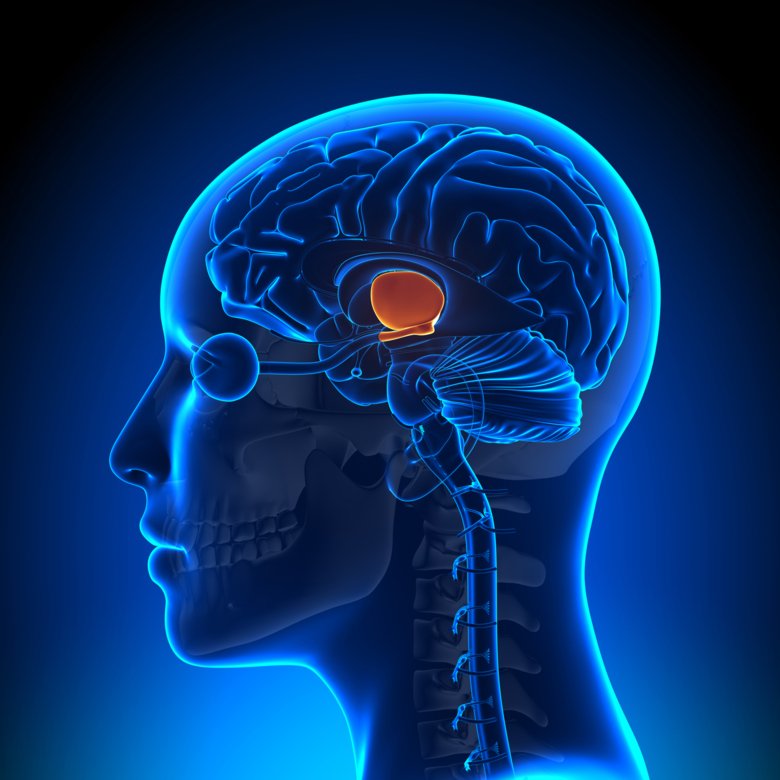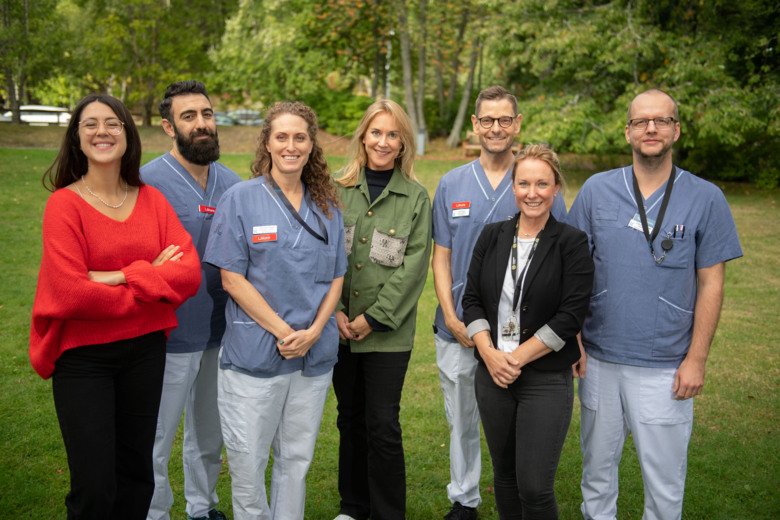 Photo: Getty Images
Photo: Getty ImagesALS Clinical Research Group
ALS Clinical Research Group's webpage.
The group strives to integrate ALS research and care by conducting clinical research.

ALS (amyotrophic lateral sclerosis) is a fatal neuromuscular disease that is characterized by a degeneration of upper and lower motorneurons. The patients experience a weakness usually starting in the upper or lower extremities spreading to other regions weakening both speech and swallowing. Besides the muscle weakness, cognitive dysfunction and behavioral changes are seen in about 50% of the patients and some develop fulminant frontotemporal dementia.
 Photo: Getty Images
Photo: Getty ImagesALS Clinical Research Group's webpage.
The group strives to integrate ALS research and care by conducting clinical research.

This year marks the 10th anniversary of the ALSrisc project, and we would like to take this opportunity to thank the people living with ALS and their families for their invaluable contribution.

Caroline Ingre has been appointed adjunct professor of neurology at the Department of Clinical Neuroscience, from October 1, 2025. Congratulations to Caroline!

On February 14 2025, Juliette Foucher defended her thesis "From cognitive and behavioral impairment to clinical trial inclusion, for an inclusive approach of Amyotrophic Lateral Sclerosis"
Take some time to listen to three new ALS related radio interviews, from April 23th 2024.
1. Sofia Imrell talks us through her recent research on the latest ALS numbers in Sweden.
2. The recent work from our team was discussed on the Radio as Tomas Hedman presented results showing an increase in the number of ALS cases, specifically in Sweden.
3. Caroline Ingre elaborate on the importance of more ALS research in Sweden.
Neuroförbundet distributes close to SEK 14 million to three ALS research projects. The research should contribute to better nursing, new medicines and precision medicines.

There is no single test that provides the ALS diagnosis. The diagnosis is based on clinical and electrophysiological signs, and the exclusion of other diseases. Little information can thus be given to the patient about the course of the disease. The disease has no cure. The aim with our research is to increase the knowledge about several aspects of the disease, and ultimately find a cure.
My group works within many areas of the ALS disease. We have created a national quality registry, a tissue biobank, an imaging bank and collected data on lifestyle and environment. We also conduct clinical trials on ALS.
 Photo: iStock / Getty Images Plus,Kkolosov
Photo: iStock / Getty Images Plus,KkolosovThe group strives to integrate ALS research and care by conducting clinical research.
The main interests of the group are risk and prognosis of ALS disease, the development of imaging methods, biomarker studies and psychological and cognitive influence on ALS. The group is also conductiong several clinical trials in ALS.
Kläppe U, Sennfält S, Lovik A, Finn A, Bofaisal U, Zetterberg H, Blennow K, Pihel F, Kmezic I, Press R, Samuelsson K, Månberg A, Fang F, Ingre C
Neurodegenerative biomarkers outperform neuroinflammatory biomarkers in amyotrophic lateral sclerosis
Amyotroph Lateral Scler Frontotemporal Degener. 2023 Oct 3:1-12. doi: 10.1080/21678421.2023.2263874
Foucher J, Winroth I, Lovik A, Sennfält S, Pereira JB, Fang F, Lule D, Andersen PM, Ingre C. Validity and reliability measures of the Swedish Karolinska version of the Edinburgh Cognitive and Behavioral ALS Screen (SK- ECAS). Amyotroph Lateral Scler Frontotemporal Degener. 2023 Jul 31:1-6. doi: 10.1080/21678421.2023.2239857.
Longinetti E, Sveinsson O, Press R, Ye W, Ingre C, Piehl F, Fang F. ALS patients with concurrent neuroinflammatory disorders; a nationwide clinical records study. AMYOTROPHIC LATERAL SCLEROSIS AND FRONTOTEMPORAL DEGENERATION 2022 23;3-4 209-219
Klappe U, Chamoun S, Shen Q, Finn A, Evertsson B, Zetterberg H, Blennow K, Press R, Samuelsson K, Manberg A, Fang F, Ingre C. Cardiac troponin T is elevated and increases longitudinally in ALS patients. AMYOTROPHIC LATERAL SCLEROSIS AND FRONTOTEMPORAL DEGENERATION 2022 23;1-2 58-65
Kliest T, Van Eijk RPA, Al-Chalabi A, Albanese A, Andersen PM, Amador MDM, BrÅthen G, Brunaud-Danel V, Brylev L, Camu W, De Carvalho M, Cereda C, Cetin H, Chaverri D, Chiò A, Corcia P, Couratier P, De Marchi F, Desnuelle C, Van Es MA, Esteban J, Filosto M, GarcÍa Redondo A, Grosskreutz J, Hanemann CO, HolmØy T, HØyer H, Ingre C, Koritnik B, Kuzma-Kozakiewicz M, Lambert T, Leigh PN, Lunetta C, Mandrioli J, Mcdermott CJ, Meyer T, Mora JS, Petri S, Povedano M, Reviers E, Riva N, Roes KCB, Rubio MÁ, Salachas F, Sarafov S, SorarÙ G, Stevic Z, Svenstrup K, MØller AT, Turner MR, Van Damme P, Van Leeuwen LAG, Varona L, VÁzquez Costa JF, Weber M, Hardiman O, Van Den Berg LH. Clinical trials in pediatric ALS: a TRICALS feasibility study. Amyotrophic lateral sclerosis & frontotemporal degeneration 2022 ; 1-8
Cui C, Ingre C, Yin L, Li X, Andersson J, Seitz C, Ruffin N, Pawitan Y, Piehl F, Fang F. Correlation between leukocyte phenotypes and prognosis of amyotrophic lateral sclerosis. eLife 2022 11;
Sennfält S, Kläppe U, Thams S, Samuelsson K, Press R, Fang F, Ingre C. Dying from ALS in Sweden: clinical status, setting, and symptoms. Amyotrophic lateral sclerosis & frontotemporal degeneration 2022 ; 1-9
Cui C, Sun J, McKay KA, Ingre C, Fang F. Medication use and risk of amyotrophic lateral sclerosis-a systematic review. BMC medicine 2022 20;1 251-
Klappe U, Longinetti E, Larsson H, Ingre C, Fang F. Mortality among family members of patients with amyotrophic lateral sclerosis - a Swedish register-based study. AMYOTROPHIC LATERAL SCLEROSIS AND FRONTOTEMPORAL DEGENERATION 2022 23;3-4 226-235
Sennfält S, Kläppe U, Thams S, Samuelsson K, Press R, Fang F, Ingre C. The path to diagnosis in ALS: delay, referrals, alternate diagnoses, and clinical progression. Amyotrophic lateral sclerosis & frontotemporal degeneration 2022 ; 1-9
Longinetti E et al. ALS patients with concurrent neuroinflammatory disorders; a nationwide clinical records study. - a study where we investigated if inflammation in proximity of the motor unit may contribute to neurodegeneration in ALS, where our observations suggested that neurodegeneration might trigger autoimmunity.
Månberg A et al. Altered perivascular fibroblast activity precedes ALS disease onset. - a study where we explored the possibility of glial and vascular contribution in the progression variability observed in sporadic ALS, and concluded that the activity of the recently discovered perivascular fibroblast can predict survival of patients with ALS.
Klappe U et al. Cardiac troponin T is elevated and increases longitudinally in ALS patients. - a study where we investigated whether high-sensitivity cardiac troponin T (hs-cTnT) could act as a diagnostic or prognostic biomarker in ALS, comparing it to neurofilament light (NfL). We concluded that NfL was a stronger diagnostic and prognostic biomarker than hs-cTnT for ALS, but that hs-cTnT might constitute a disease progression biomarker as it increases longitudinally.
McKay KA et al. Military service and related risk factors for amyotrophic lateral sclerosis. -a study where we aimed to summarize and assess the quality of the connection between military service and ALS. We concluded that there is a possible association between military service and the subsequent development of ALS; however, the evidence was limited.
Klappe U et al. Mortality among family members of patients with amyotrophic lateral sclerosis - a Swedish register-based study. - a study where we investigated whether partners of ALS patients have higher mortality due to outcomes related to psychological distress, and if parents and siblings of ALS patients have higher mortality due to diseases that co-occur with ALS. We concluded that increased mortality due to suicide and accidents among partners of ALS patients is likely attributable to severe psychological distress following the ALS diagnosis, and increased mortality due to dementias among parents and full siblings of ALS patients suggests shared mechanisms between neurodegenerative diseases.
Sun J et al. Blood biomarkers and prognosis of amyotrophic lateral sclerosis. - a study where we investigated the potential of blood biomarkers to serve as prognostic biomarkers and found that 4 of them could serve as additional prognostic biomarkers in ALS.
Cui C et al. Creatinine and C-reactive protein in amyotrophic lateral sclerosis, multiple sclerosis and Parkinson's disease. - a study where we investigated the potential of serum creatinine and C-reactive protein as potential biomarkers for neurodegenerative diseases like ALS, MS and PD, where we did not observe specific patterns for MS and PD patients, but did for ALS patients.
Elbe P et al. Effectiveness of percutaneous endoscopic gastrostomy in amyotrophic lateral sclerosis. - a study where we aimed to determine complications and outcomes in patients with percutaneous endoscopic gastrostomy (PEG) insertion, and concluded that PEG placement was an effective, safe nutritional method with a low complication rate in patients with ALS.
Ingre C et al. Lipids, apolipoproteins, and prognosis of amyotrophic lateral sclerosis. - a study where we we investigated whether lipids and apolipoproteins could predict prognosis of patients with ALS, and concluded that they were both important prognostic indicators for ALS patients and recommended their monitoring.
Cetin H et al. No association between proton pump inhibitor use and ALS risk: a nationwide nested case-control study. - a study where we questioned the role of the use of proton pump inhibitors (PPIs) as a potential risk factor for ALS, and concluded that no association was observed between PPIs usage and ALS risk.
van Eijk RPA et al. TRICALS: creating a highway toward a cure Amyotrophic lateral sclerosis & frontotemporal degeneration. - a study where we present how the Treatment Research Initiative to Cure ALS (TRICALS) targets the need for change in our current approach toward drug development in ALS.
Team leader within Caroline Ingre's research group. A team leader acts as an additional leadership support to the research group leader and conducts their own research.
Research focus: Sex and Gender in Pathogenesis of Neurodegeneration with focus on Parkinson’s disease
People who are not formal group members or affiliated with the division, but have a close collaboration with the team.

Ridita Farahnaz Khan

Anagha Keshavaprasad
Master's Student
Email: anagha.keshava@gmail.com
I am working on investigating novel biomarkers for Parkinson's disease. My work focuses on measuring hypoxia-related microRNAs in astrocyte-derived extracellular vesicles from patients treated with the GLP-1 analog Exenatide, to understand its potential neuroprotective mechanisms.